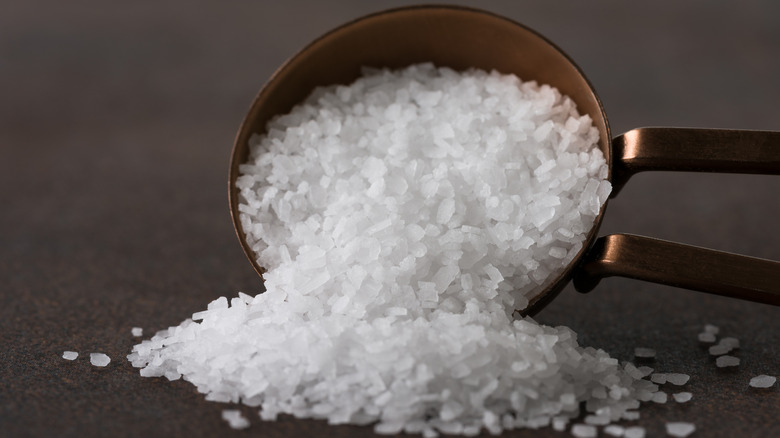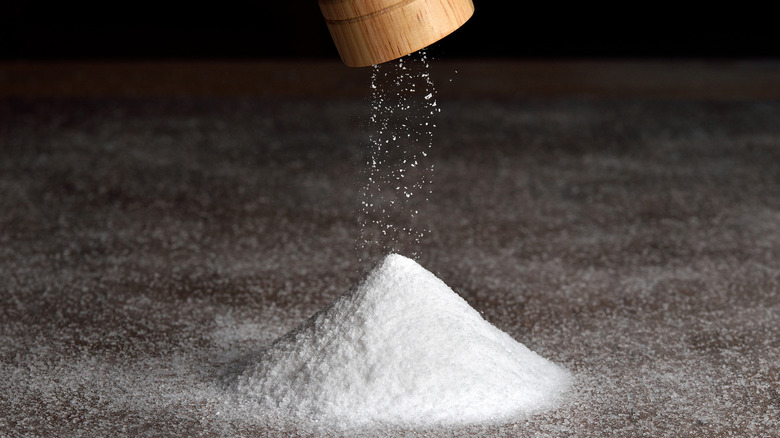Substituting For Kosher Salt Is Much Easier Than You Might Expect
While some recipes will simply ask you to add salt, others are more specific about the type of salt you should be using. But aren't all salts meant to be the same... salty? Well, not really. Pink-colored Himalayan salt is considered to be the purest of all salts, whereas sea salt is rich in minerals and coveted for its complex flavor, according to Country Living. Much like sea salt, flake salt is made from seawater, but has a lower mineral content in comparison and is generally used to finish sweet and savory preparations. Potassium iodide is typically added to table salt, which prevents crystals from clumping together, and also gives off a sharp taste when used in large quantities. Then, there's kosher salt.
Country Living suggests that if there's ever a situation where you can only buy one type of salt, it should be kosher, not table salt. Harvested from salt deposits, kosher salt is made of wide, coarse grains, which are also responsible for giving the salt its name. According to The Pioneer Woman, the large size of kosher salt grains makes it ideal for the process of koshering in Jewish cooking, where all liquids from raw meats are thoroughly removed by salting them first.
Kosher salt's large crystals also have another advantage beyond kosher cooking: the texture of kosher salt makes it incredibly hard to over-salt any food. This is why it can be tricky to substitute kosher salt, but if you're in a pinch, there's an easy way to do so.
Table salt to the rescue
In case a recipe calls for kosher salt and you have nothing but table salt at your disposal, Food Network says you can use it as a quick substitute, but there's one important thing to keep in mind. Because of the difference in texture and, consequently, the volume, a teaspoon of fine table salt will always be saltier than a teaspoon of kosher salt. This is why table salt is not a direct substitute for kosher salt and it's best to use a smaller quantity. The site recommends going with a quarter teaspoon of table salt for every half teaspoon of kosher salt that you want to substitute.
Alternatively, The Pioneer Woman says that if you have an option, it's best to use coarser salts over table salt when substituting kosher salt. Flaky sea salts, pink salts, and the like can replace kosher salt in equal measurements. If coarse salts aren't an option, even using fine sea salt is better than using table salt because it tends to have more nutrients.
So, while any coarse sea salt is a better and more direct substitute for kosher salt, if you only have table salt in your pantry, it can be used as an easy and convenient salt swap. The only word of advice? When in doubt, start with a smaller amount of table salt because you can always add more later.

